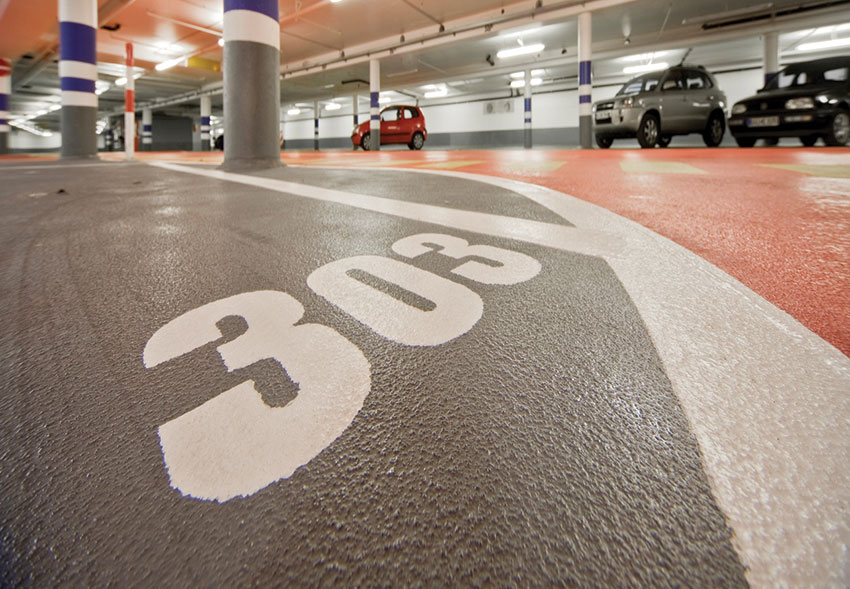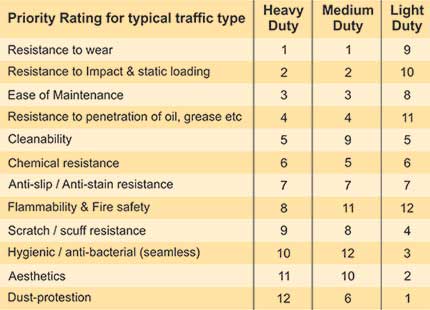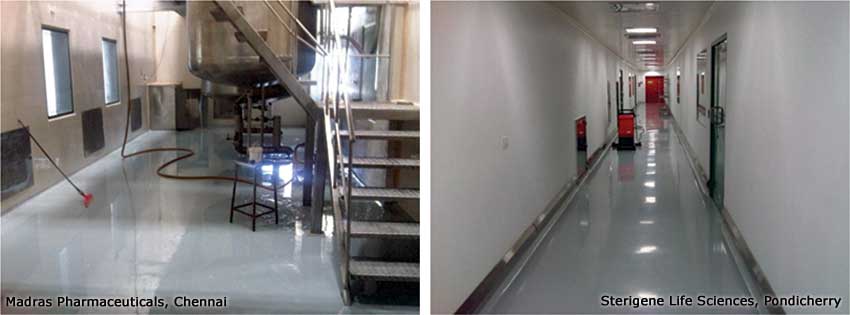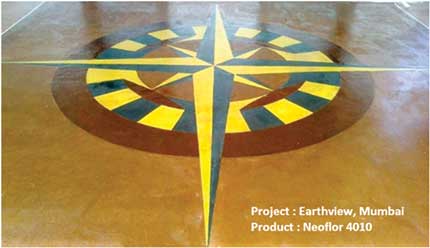
With the advent of modernization in every industry and the growing concern for sustainability, people have become more discerning and
don’t look at floors as just floors! They seek much more, and no wonder, before devising a flooring solution, an expert will take
into account various factors such as the movement of people/machinery in a premise, the ambient environment, nature of activities taking place within the building and much more. There are various permutations and combinations, and there can be different floors for different departments in a single industry these days.
What’s more, the market is abuzz with such products and companies are constantly upgrading their offerings to meet the growing
demand in various segments such as airports, Metro-Rail projects, shopping malls, IT parks, and SEZs. According to experts,
the Logistics, Warehousing, and Packaging Industries have also played vital roles in boosting the Industrial Flooring market upwards.
They are also of the view that big ticket projects like Delhi Mumbai Industrial Corridor, where some industrial townships are planned,
will increase the demand for flooring products in the future. In the following pages, the industry’s bigwigs share their views with S.D. Khan.
What are the different types of industrial flooring materials available in the market and what products are you offering?
The term “Industrial Floorings” encompasses a wide array of materials starting from concrete, kota stone and other natural stones to epoxy, PU and other synthetic products. While concrete flooring continues to be the work-horse of majority of the industries, viable protection mechanisms are laid over these concrete floorings to impart special properties. In this context, our products cover three specific characteristics:
The reason for such an approach is because all industries are not alike in their functional and aesthetic requirements. A food processing plant’s flooring requirement is completely different from of electronic assembly plant, pharmaceutical plants traffic is totally different from an automobile plant, and so on. Hence, we strive to offer products that particularly suit specific industries’ functional criteria.


Please elaborate upon the selection criteria for specific application areas.
As stated above, each industry has a different set of criteria and it is very difficult to generalize all of them.
Again, different operating area in the same plant would require different products. For example, in an automobile plant, paint booth and welding area require two different operating conditions. Hence we have developed a matrix of different set of conditions vis-a-vis loading conditions that can be seen in the accompanying table.
Besides the above, other factors that determine the selection criteria of type of flooring for a particular situation are as follows:
What are your insights on the opportunities, growing competition, and innovative products and new ideas required to flourish in the market?
Opportunities & challenges: Right now, it is very difficult to be optimistic in the present climate of depressed sentiment. However, we have to look forward to an improvement in the investment climate as industrial floorings are heavily dependent on new investments taking place in various segments in the manufacturing sector. Having said that, success in the industrial flooring is closely related to how well you provide the service to the client rather than the product per se. Execution capability in providing quality solution at the committed time within the agreed parameters of the cost only determines the growth. Hence, we are concentrating on investment in adequate tools and equipment, training of work-force and improving our capability in project management so as to meet the emerging needs of growth in the next few years.

We strive to offer innovative products that would normally be very difficult to execute. For example, we did a designer concrete with coloured micro-toppings with stunning effect. (See picture below)
Market prediction on demand for 12th five year plan. The market potential in this industry, especially in India is definitely high, given the fact that the industrial flooring market is less than 2% of the construction industry turnover. However converting the market potential into a viable opportunity is a different matter. The sluggish investment climate currently being felt in India has
obvious fall-outs in all other associated sectors including our flooring market. As about 80% of flooring market is contributed by new projects and the balance 20% from maintenance market, a healthy investment climate is essential in exploiting the market potential.

Copyrights © 2024 All Rights Reserved by Subana Technologies Pvt. Ltd.
Designed & Maintained by Constro Facilitator